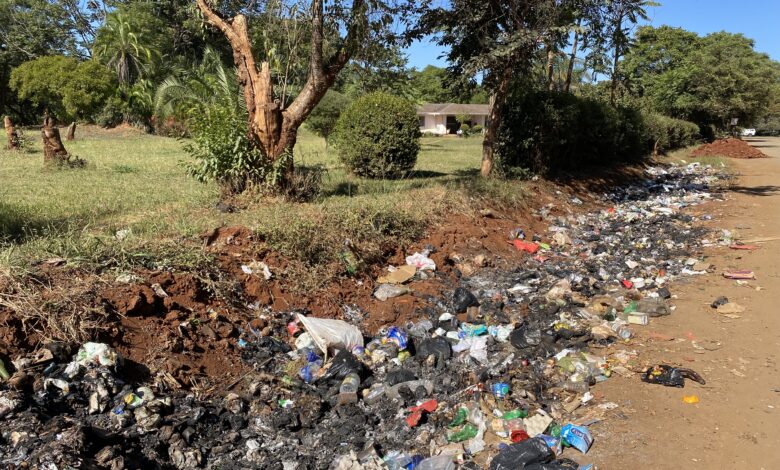Waste Management Strategies in Zimbabwe

Waste management in Zimbabwe currently looks and feels like an untamable beast. Looking at solid waste, Zimbabwe grapples with fostering public awareness of anti-littering. All ten provinces are facing the same challenge, roping in and controlling appropriate disposal of solid waste. Therefore, with that in mind, the President of the Republic of Zimbabwe, Dr. Cde. Ed Mnangagwa, declared disaster in Harare. It was termed “Disaster: Emergency Solid Waste Management in Harare Metropolitan Province”.
Furthermore, this is through Statutory Instrument 140 of 2023. The declaration came to be the first week of August. Additionally, the Minister of Local government and Public Works assigned its powers of managing waste to the Ministry of Environment, Climate, Tourism and Hospitality Industry. The operating entity to remedy this disaster is the Environmental Management Agency (EMA). To help with remedial measures, residents are encouraged to cooperate by desisting from littering and dumping waste at undesignated sites. Residents should report all illegal dumpsites and non-collection of waste in their areas. This is one way to ensure waste management in Zimbabwe is under control with the help of various stakeholders.
Additionally, targeted areas in the Harare Metropolitan area are Chitungwiza, Harare, Ruwa and Epworth. These areas are famous when it comes to illegal dumpsites. This resorted to the decline of proper waste management in Zimbabwe. Residents resort to these dumpsites because refuse collection over the years has been close to non-existent. This, however, is not an excuse but the reason for such behaviour. Also, awareness campaigns on proper disposal of solid waste are something EMA needs to work on if these remedial measures are to be a success.
Effects if improper waste management in Zimbabwe
Regarding waste management, Zimbabwe has a long way to go. Littering in the nation is something authorities are grappling with now. Vendors along road servitudes and at traffic lights pose a threat to proper litter disposal. Also, the unavailability of trash bins within these areas also plays a huge role in the inappropriate disposal of litter. The powers that be are lagging behind when it comes to refuse collection. Private players are trying to fill this gap, but their fees are steep for the majority of residents who resort to either burning litter or illegal disposal.
Furthermore, proper litter disposal is essential for various reasons, including environmental protection. From an environmental perspective, litter disposal is crucial to prevent soil, water, and air pollution. Litter can also serve as a breeding ground for insects and rodents and could potentially start fires if it contains flammable materials. As litter degrades, it releases chemicals and microparticles that aren’t natural to the environment, causing a number of problems. Zimbabwe’s waste management plan needs to combat such effects of inappropriate litter disposal.
On the health front, litter can facilitate the spread of diseases. Transmission of germs is likely by directly coming into contact with litter. Bacteria and parasite transmission is possible to humans indirectly through animals or insects that come in contact with contaminated litter. From an economic standpoint, litter along highways must be picked up and disposed of daily. This diverts funds from other projects like road repair or other social amenities to benefit the public. Therefore, waste management in a nation like Zimbabwe has a number of adverse effects on society.




